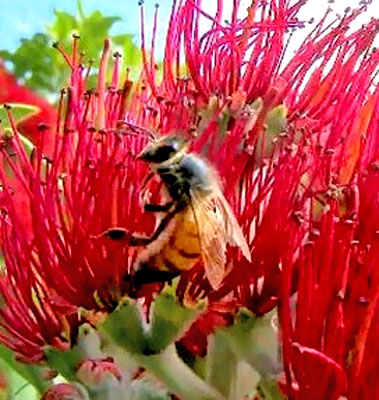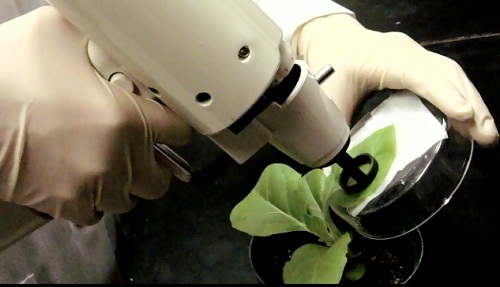|
from Coto2 Website
Our ability to hear and appropriately respond to the crisis of declining pollinators will determine humanity’s survival.
Steiner believed the industrialization of bees would lead to their demise.
It looks like he was right. In the past
two decades, the United States has lost 100-300 billion bees, and
the problem has spread to Europe and beyond. But several factors
above industrialized beekeeping operations contribute to
this massive die-off.
Pollinators are further sickened by lack of a diverse diet from the tens of millions of monoculture acres.
By ingesting genetically modified crops, pollinators also ingest GM microbes, to their detriment. By and far, though, agrochemicals contribute most to pollinator decimation. In a last ditch effort to save the hive, some bees seal off hive cells that contain inordinate amounts of pesticide.
But even these hives eventually die.
Taking advantage
of weakened, disoriented bees, exotic pathogens like the
Varroa
mite, imported via globalized trade, suck the remaining life out of
them. And, so, we see the collapse of the honeybee and
North American bats.
Theatrically released on March 25, the
award-winning film is further supported by a newly released report
from
the United Nations "Environment
Program,"
Global Honey Bee Colony Disorders and Other Threats to Insect
Pollinators.
Of the 100 or so crop species that
provide 90% of the world’s food, bees pollinate 71 of them,
according to UNEP’s report. Among the 20,000 known bee species
worldwide, the honeybee,
Apis mellifera, is most important,
contributing between $33 and $82 billion annually (€22.8 to €57
billion).
They co-evolved so that the sessile organism feeds the aerial one in exchange for propagation.
That mutualism supports much of life
today. Without pollinators, crops will collapse. As crops collapse,
myriads of species, including humans, will starve.
But human survival is hardly guaranteed
if 40% of our food sources vanish. While gators and crocs can go a
year or more without eating - and this survival mechanism vastly
contributes to the species’ longevity - humans cannot.
The report does not mention genetically engineered crops as a contributing factor to bee decline, but does attack monocultures:
In Queen of the Sun, several speakers have no doubt. When plants are genetically altered (via a crude gun method), the process is so unreliable that only one out of thousands of cells transmutes.
Dr Vandana Shiva explains that, because of this, antibiotic resistant genes and viral promoters have to be added.
These GM bacteria, toxins, and viral promoters are transferred into our gut (and that of bees), where they continue to function within the host.
Only now, we’re the host. The bee is the
host. And bees aren’t doing so well. Science has shown that high
fructose corn syrup, a GM product fed to bees,
inhibits genetic
expression of immunity and detox functions.
Both make several suggestions to agribusiness and individuals, including:
The UNEP report notes that pollinator
conservation efforts should also plan nursery habitats, since the
requirements of larval stages differ from winged adults.
The top six agrochemical companies,
...also spread genetically modified
crops.
The tragedy is that when pollinators
go, so will flowering plants and, likely, the Age of Mammals.
|


